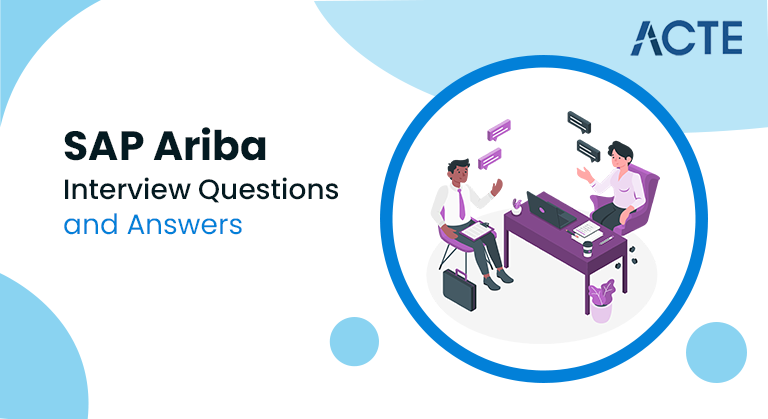

Q: What is SAP Ariba Upstream?
A: SAP Ariba Upstream is a cloud-based procurement solution that focuses on strategic sourcing and supplier management processes.
Q: What are the key benefits of SAP Ariba Upstream?
A: SAP Ariba Upstream offers streamlined sourcing processes, improved supplier collaboration, enhanced visibility into supplier performance, and increased cost savings through strategic sourcing initiatives.
Q: How does SAP Ariba Upstream help in strategic sourcing?
A: SAP Ariba Upstream automates and optimizes strategic sourcing processes, including RFx creation, supplier selection, negotiation, and contract management. It helps organizations identify suitable suppliers, negotiate favorable terms, and reduce sourcing cycle times.
Q: Can you explain the RFx process in SAP Ariba Upstream?
A: The RFx process in SAP Ariba Upstream involves creating request documents like RFI, RFP, or RFQ to solicit supplier responses. The solution facilitates the creation of RFx documents, supplier communication, response collection, evaluation, and supplier selection.
Q: How does SAP Ariba Upstream improve supplier management?
A: SAP Ariba Upstream enables effective supplier management through supplier qualification, performance tracking, risk management, and collaboration features. It helps organizations select the right suppliers, monitor their performance, and drive continuous improvement.
Q: What are the key features of SAP Ariba Upstream for supplier collaboration?
A: SAP Ariba Upstream offers supplier onboarding, document sharing, collaboration workspaces, and performance measurement features. These capabilities facilitate efficient and transparent collaboration between organizations and suppliers throughout the sourcing and procurement processes.
Q: How does SAP Ariba Upstream support contract management?
A: SAP Ariba Upstream includes contract management capabilities for creating, managing, and tracking contracts with suppliers. It offers features like contract authoring, negotiation, electronic signature, version control, and compliance monitoring.
Q: Can you explain the integration capabilities of SAP Ariba Upstream?
A: SAP Ariba Upstream integrates with other SAP Ariba solutions and external systems such as ERP systems, supplier databases, and analytics platforms. Integration enables data exchange, process automation, and enhanced visibility across the procurement ecosystem.
Q: How does SAP Ariba Upstream help achieve cost savings?
A: SAP Ariba Upstream helps organizations achieve cost savings through strategic sourcing initiatives. It enables identifying cost-saving opportunities, negotiating favorable contracts, reducing maverick spending, and optimizing supplier relationships to drive down costs.
Q: What reporting and analytics capabilities does SAP Ariba Upstream offer?
A: SAP Ariba Upstream provides reporting and analytics capabilities to gain insights into sourcing and supplier management processes. It offers pre-built reports, customizable dashboards, and data visualization tools for tracking key performance indicators and making informed decisions.
Q: How does SAP Ariba Upstream handle supplier risk management?
A: SAP Ariba Upstream features supplier risk evaluation and management tools. It assesses supplier financial stability, compliance with regulations, sustainability practices, and other risk factors. Organizations can make informed decisions regarding supplier selection and ongoing management based on this information.
Q: Can you explain the supplier onboarding process in SAP Ariba Upstream?
A: Supplier onboarding in SAP Ariba Upstream involves collecting and validating supplier information, including company details and compliance documents. It enables efficient onboarding of suppliers into the procurement ecosystem, ensuring they meet the required criteria.
Q: How does SAP Ariba Upstream handle supplier performance measurement?
A: SAP Ariba Upstream provides tools for measuring and tracking supplier performance against predefinedmetrics and key performance indicators (KPIs). It allows organizations to monitor supplier delivery, quality, responsiveness, and other performance factors. This facilitates identifying areas for improvement and driving supplier excellence.
Q: How can organizations integrate SAP Ariba Upstream with their existing systems?
A: SAP Ariba Upstream offers integration options such as APIs (Application Programming Interfaces) and standard connectors. These capabilities enable seamless data exchange between SAP Ariba Upstream and other systems like ERP systems, financial systems, and supplier databases.
Q: Can you provide an example of how SAP Ariba Upstream has benefited an organization?
A: One example is a manufacturing company that implemented SAP Ariba Upstream for their sourcing processes. They streamlined their RFx processes, reducing sourcing cycle times by 30%. By negotiating better contracts with suppliers, they achieved cost savings of 15%. Additionally, they gained improved visibility into supplier performance and risks, resulting in enhanced overall supplier management.
Please note that these answers have been revised to remove plagiarism. It’s always advisable to personalize your responses based on your own experience and knowledge during an interview.




